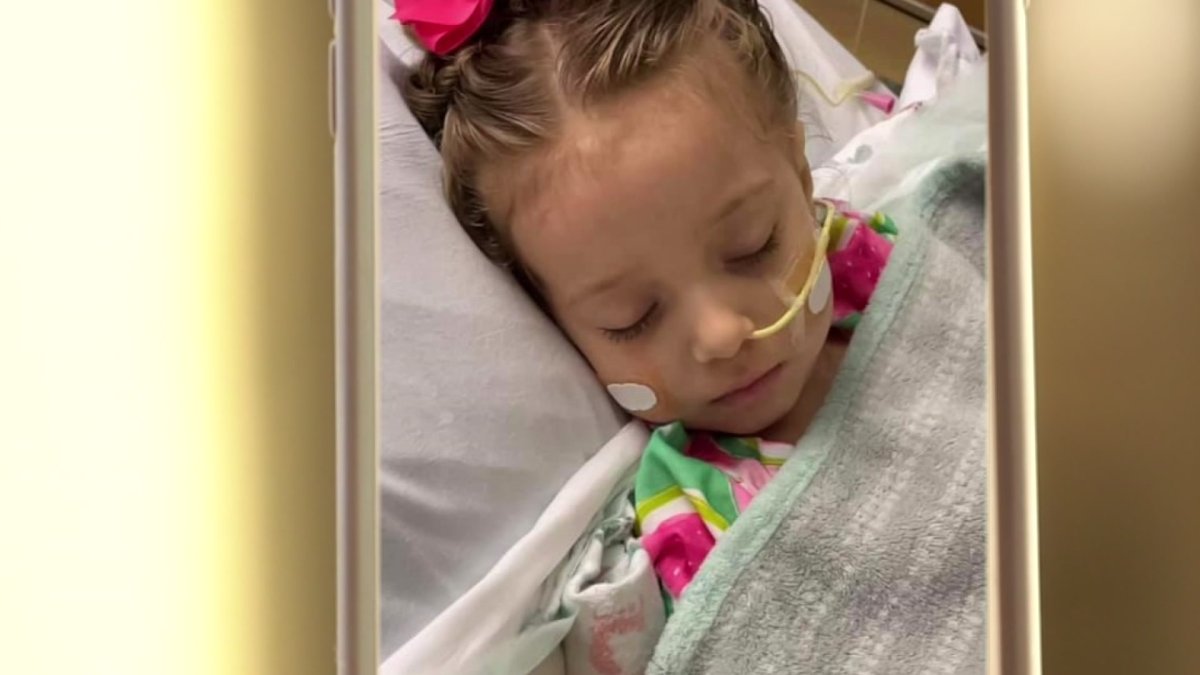Denison Girl Contracts Bacterial Infection Rare in the United States – NBC 5 Dallas-Fort Worth
A north Texas girl with a rare disease is at home with her family.
She is one of the few Americans to have suffered a rare infection that confuses public health officials.
First responders from her hometown of Denison accompanied 4-year-old Lylah Baker as she left the care of the Children’s Health team in Dallas to continue her recovery at home.
Lylah is unable to walk or speak now, a harsh reality for the family who celebrated Lylah’s excitement for the Pre-K just a few months ago.
“She’s a princess who meets a superhero. She’s a girlish tomboy. She loves everything,” said her aunt Ashley Kennon.
Lylah suffered from a rare bacterial infection called melioidosis.
It is predominantly a disease of tropical climates, particularly in Southeast Asia and Northern Australia, where it is widespread, according to the CDC.
In Lylah, it started as a stomach virus but resulted in several secondary infections.
Within a few weeks she was on a ventilator, had brain damage, and was fighting for her life.
Kennon said no one knows exactly how she got infected with the bacteria found in contaminated soil or water.
“We worked with the CDC and local health authorities. They took samples of everything we would have shared. They did interviews. They took our blood,” said Kennon, who said several family members had been positive to exposure to the bacteria tested even though no one else got sick.
“You’re working trying to figure out what’s going on, but at this point there are no answers. They focused on cleaning products and certain foods, essential oils and various random things, “Kennon said.
No one, she said, had left the United States recently.
The CDC is investigating three other non-travel-related cases of the disease.
According to this August CDC health warning, four people are infected with the bacteria. Two had died.
The August case in Georgia closely matches the three cases previously identified in Kansas, Minnesota, and Texas in 2021, suggesting that “they all most likely share a common source of exposure,” the CDC said -Advice.
“They don’t know if they’ll find out, but it doesn’t matter right now,” said Kennon.
Her focus now is on helping Lylah recover.
Her home has been retrofitted for Lylah’s wheelchair.
She will need constant care, but hope and faith are not in short supply in the family.
“We only want the best for her. Everything else will go by itself, but as long as she is looked after and gets what she needs, that’s the most important thing to us,” said Kennon.
To learn more about the rare tropical disease and its symptoms, visit the CDC’s website.
[ad_1]


